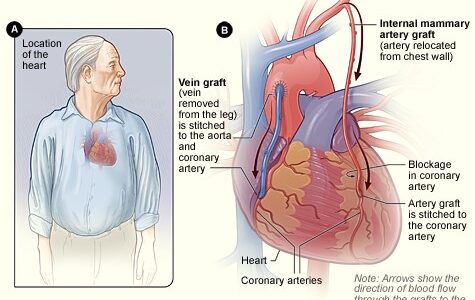Coronary artery bypass grafting (CABG) is a type of surgery that includes grafted artery or vein bypasses (that is, goes around) the blocked portion of the coronary artery and improves blood flow to the heart. This surgery is performed for patients who have severe blocked coronary artery disease (CHD), also called coronary artery disease.
Coronary artery disease is a condition in which a substance called plaque builds up inside the coronary arteries Plaque can narrow or block the coronary arteries and reduce blood flow to the heart muscle. These arteries supply oxygen-rich blood to your heart.

